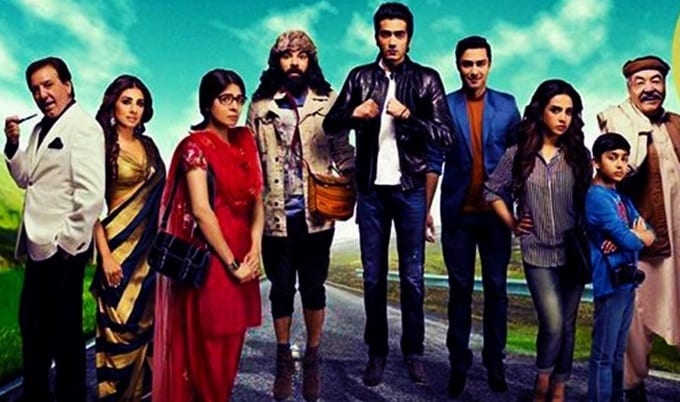“No black has superiority over any white, and no white has superiority over any black, except on the basis of Taqwa.”
So, the ninth instalment of Aab-e-Hayat is out and we get to indulge in yet another dimension of the story. The good thing is finally the readers are able to connect the dots a bit. Although I was expecting more of the Chunni track, this episode was adventurous and touching in its own way.
Progress
We are transported to the rain forests of the second largest African country the Democratic Republic of Congo and its deforestation program which is extremely harmful for the native pygmies living there. The country has been suffering from poverty and and civil wars for the past 45 years. Salar is the country head of World Bank there, and meets Petris Ibaka (hope I am spelling the name right). Ibaka is a native but has studied in Harvard School of Business. Despite living in the U.S for 25 years he has now returned to help his people. Ibaka makes Salar realise that the program is not only harmful for the natives, but also involves heinous corruption. He and Salar bond immediately and Salar is put in a dilemma of whether he should quit silently or raise a voice against it. Before he can manage, the corruption of the deforestation program is published as a cover story in Guardian. The story goes viral and the headquarter tries to hush it all up. Meanwhile, Salar presents his own detailed report on non-feasibility of this project, which makes the headquarter put all the blame (of treason and passing confidential information) on him and he is summoned to Washington. Salar is extremely tense about leaving behind his family (Imama, Jibrael, Inaya and third one coming soon). He bids Imama farewell in a pensive mood (which Imama notices as well) and leaves for Washington after receiving a mysterious phone call.
In the second part of the story, we get to know that Waseem and Saad were killed in a mass killing at their place of worship. Imama is living in U.S with Salar, is expecting her first child and this sudden loss puts her in depression. She tries to meet his father who brutally tells her off and puts the blame of Waseem and Salar’s murder on Sikandar Usman and family. She then realises that she was unintentionally going to beg her father for forgiveness (as predicted by him before she left his home). She snaps out of it but cannot deal with depression. Salar is extremely worried about her but cannot do much as he is busy with his Ph.D. and job. Finally, one day Imama asks to go to Pakistan for which Salar agrees. She has the intentions to leave Salar so that he can flourish without her nahoosat. She returns to Dr. Sibt-e-Ali’s house but is unable to find inner peace. One day Imama gets to meet an old woman who tells her the meaning of shukar and makes her realise that what she is doing with Salar is ungratefulness. Imama realising her mistake phones Salar telling her decision to go back to him.
The last scene describes a neurosurgery being done on a brain with 150+ IQ level. The surgeon is one of the best in the world but ‘someone’ whose life and death depends on this surgery is extremely worried.
Connecting the Dots…
Using the first episode as a key, we can make a few guesses about the storyline.
- The way Salar has left Imama in this episode, does not bid well.
- The assassination attack shown in the first episode may have been planned for Salar. Now that we know that higher authorities are not happy with his honesty and he is getting life threats as well.
- Salar might be the old man who had lost his memory and whose son was feeding him. This may be in contrast with his high IQ and photographic memory. But God knows what he did to deserve it if this is the case.
- Salar may or may not be the person whose surgery is being done. I doubt this because it is too obvious that Salar has a super-genius brain. But then, this surgery might be a result of the attack on him.
- We will see more of Petris Ibaka, probably as a powerful official.
- Jibarel is about to play a pivotal role in the story after he grows up.
Quality Rating
I would give a score of 3 out of 5 for pace, as the story is moving not very quickly. For character development, 4 would be appropriate. We have seen Imama going through much and luckily she has evolved in the process. The Imama we saw with Salar in Congo was a responsible and loving wife as opposed to the judgemental one we have been seeing in the past episodes. Salar remains Salar wherever he goes and we cannot detect any developments in his character. Overall the quality rating is 4.5 out of 5.
What to Expect
Unless a completely new track is introduced, I am hoping that episode 10 gives us more insight into Chunni’s track. Salar’s fate in Washington is questionable and we hope that no harm befalls on him. Imama will have to be stronger if she is to cope with living in dangers. She can take decisions but does not have the courage to fulfil them. May be she can be more of a help to Salar than she can think of. The episode was surely engaging and the readers anticipate the 10th episode eagerly.
Looking forward to read your say on this episode.
Yours Truly
Noor-us-Saad



